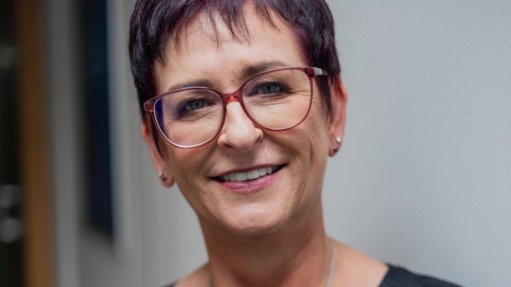Are gas amasela loading?
Social commentator and broadcaster Lukhona Mnguni courted controversy last year when he branded politicians amasela – Xhosa for thieves – who steal public money. The context of this unsavoury characterisation was the spiriting away of taxpayers’ money that was meant to insulate both lives and livelihoods in the early days of Covid-19.
Mnguni’s utterances may have thrust him into the bad books of the high and mighty, but the amasela tag is simply not going away. Remember when severe flooding hit parts of KwaZulu-Natal in April and very few people warmed to the idea of government entities distributing State-provided resources to cushion those who had been rendered homeless and were in desperate need of food, water, medication and other provisions? The preference of most ordinary people was that the money be channelled through charitable organisations. Gift of the Givers – which has done fabulous work in disaster-hit spots here and abroad – was the nongovernmental organisation (NGO) of choice for many.
Granted, there are many, many men and women of probity serving in government. However, the public clamour for an NGO, rather than a government entity, to play a central role in relief efforts in the aftermath of the KwaZulu-Natal floods suggests that, in the popular imagination, those serving in senior positions in government are mostly amasela.
By the way, it’s not only in South Africa where those in power are perceived to be inherently corrupt. In surveys conducted in 2019 and 2020, research outfit Afrobarometer found that the majority of Africans believed corruption in high places in their countries had increased during the previous year and that the authorities were doing very little to snuff out the scourge.
On average, across 18 countries, six out of ten Africans told Afrobarometer researchers that corruption had increased in their country, with 41% saying that corruption had actually “increased a lot”. Only one in five said corruption had decreased at least “somewhat”.
What got me thinking about Mnguni’s controversial branding of our leaders in government as amasela is the media reportage around European countries turning to African gas as an alternative to Russian supplies following the latter’s invasion of Ukraine in February. Reports emerged last month that Italian Ministers had travelled to Angola and Congo-Brazzaville, where they concluded new gas deals, and that Italy was also eyeing Mozambique as it sought to end its dependence on Russia by mid-2023. Germany’s new leader, Olaf Scholz, said in late May, while on a visit to Senegal – which is endowed with huge gas reserves – that his country would seek to pursue gas projects with the West African country. The partially State-owned Nigeria LNG has also been inundated with requests for gas from European countries it does not currently supply.
Earlier this year, the European Union decided that natural gas investments are equivalent to investments in ‘green’ energy, which implies that, for the foreseeable future, African gas from existing and yet-to-be-developed projects will be flowing to Europe.
How much of the gas bonanza will be used to line the pockets of amasela in gas-endowed African countries? A lot, I would say. There have been multiple precedents of this, some of which are captured in Nicholas Shaxson’s 2007 book, Poisoned Wells, which details how the citizens of Angola, Equatorial Guinea, Gabon, Sao Tome and Principe, and Nigeria, besides other countries, remain poor, despite having produced huge quantities of oil for decades. It is mostly the elites in these countries who have benefited, together with the oil companies that corrupt them. Nigeria has been Exhibit A. It has produced hundreds of billions of dollars’ worth of oil since the early 1960s, but for many citizens there is little to show for this.
Could we be entering a new era of gas amasela?
Article Enquiry
Email Article
Save Article
Feedback
To advertise email advertising@creamermedia.co.za or click here
Comments
Announcements
What's On
Subscribe to improve your user experience...
Option 1 (equivalent of R125 a month):
Receive a weekly copy of Creamer Media's Engineering News & Mining Weekly magazine
(print copy for those in South Africa and e-magazine for those outside of South Africa)
Receive daily email newsletters
Access to full search results
Access archive of magazine back copies
Access to Projects in Progress
Access to ONE Research Report of your choice in PDF format
Option 2 (equivalent of R375 a month):
All benefits from Option 1
PLUS
Access to Creamer Media's Research Channel Africa for ALL Research Reports, in PDF format, on various industrial and mining sectors
including Electricity; Water; Energy Transition; Hydrogen; Roads, Rail and Ports; Coal; Gold; Platinum; Battery Metals; etc.
Already a subscriber?
Forgotten your password?
Receive weekly copy of Creamer Media's Engineering News & Mining Weekly magazine (print copy for those in South Africa and e-magazine for those outside of South Africa)
➕
Recieve daily email newsletters
➕
Access to full search results
➕
Access archive of magazine back copies
➕
Access to Projects in Progress
➕
Access to ONE Research Report of your choice in PDF format
RESEARCH CHANNEL AFRICA
R4500 (equivalent of R375 a month)
SUBSCRIBEAll benefits from Option 1
➕
Access to Creamer Media's Research Channel Africa for ALL Research Reports on various industrial and mining sectors, in PDF format, including on:
Electricity
➕
Water
➕
Energy Transition
➕
Hydrogen
➕
Roads, Rail and Ports
➕
Coal
➕
Gold
➕
Platinum
➕
Battery Metals
➕
etc.
Receive all benefits from Option 1 or Option 2 delivered to numerous people at your company
➕
Multiple User names and Passwords for simultaneous log-ins
➕
Intranet integration access to all in your organisation

















